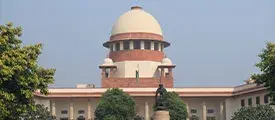Labour Laws in India
An Introduction
India ranks second in the number of labour population all across the globe and is considered as one of the most cost efficient and effective industry. Both the government sector and private sector together employ more than 521 million workers/ employees. The labour market currently contributes more than 40% of India’s entire GDP and is expected to develop radically in the coming years. The manpower behind the manufacturing and the services industry are one of the essential components of the Indian economy.
In order to manage and regulate the entire labour market, it is very important to ensure that the country has a robust labour legislation system to manage the entire operational conduct of the labour force. A well-designed labour legislation framework acts a backbone for the industrial and employment sector and aids in providing a set standard of regulation to ensure smooth functioning of the labour industry.
Labour Law Legislations- India
At present there are more than 40 existing enactments that regulate the social security and rights of the workers/ employees. These enactments in India as an extensive framework with respect to labour management in India. The courts in India have also time and again reiterated the legislative principles and have laid down new principles for labour conduct in India. One of the intrinsic objective of formulation of Labour Laws in India is to facilitate the growth of employment while protecting the rights of the workers and regulate the rights and duties of employees and employer.
The Second National Commission on Labor, 2002 recommended to consolidate the existing labor laws into 4 broad heads, namely- (i) Wages, (ii) Social security, (iii) Industrial Relations, (iv) Occupational safety and health, welfare and working conditions. In 2019, the Ministry of Labor & Employment, by subsuming 29 existing labor laws, introduced 4 bills on labor codes.
Labour laws in India, are majorly governed by the provisions of the Indian Constitution, Contract Laws, various Special Labour Laws and a plethora of State enacted laws. Thus, broadly, the labour laws in India can be categorized as under:
- Constitution of India;
- Indian Contract Act;
- Special Laws like the Industrial Disputes Act, Payment of Wages Act, Payment of Gratuity Act, Workmen’ Compensation Act, Contract Labour (Regulation and Abolition) Act, Sexual Harassment of Women at Workplace (Prevention, Prohibition and Redressal) Act etc.
- State Laws – as enacted under the State List in the Seventh Schedule under the Constitution of India.
Labour Laws and Constitution of India
The Constitution of India protects the life and liberty of an individual. In the Olga Tellis[1] case, the Supreme Court held that Right to livelihood is an integral part of Right to life and hence will be protected under Article 21. Other than this, the Constitution enlists several provisions which guarantee protection of the interests of employees and safeguards them against any kinds of discrimination in matters of public employment. Some essential provisions in the Constitution are –
- Article 14, i.e., right to equality,
- Article 16, i.e., equality of opportunity in matters of public employment,
- Article 19, i.e., the right to form associations and unions,
- Article 21, i.e., Right to Livelihood under Right to Life,
- Article 23 prohibits traffic in human beings and forced labour,
- Article 24 which prohibits child labour below the age of 14 years,
- Article 39 (d) which ensures equal pay for equal work for both men and women.
Case Laws
- Randhir Singh v. Union of India[2] –In this landmark case, the Apex Court in view of Articles 14, 16, 19 and 39 (d) observed that ‘equal pay for equal work’ is not an abstract doctrine but one of substance. The Court in the case further opined that “construing Articles 14 and 16 in the light of the Preamble and Art. 39(d), we are of the view that the principle ‘Equal pay for Equal work’ is deducible from those Articles and may be properly applied to cases of unequal scales of pay, based on no classification or irrational classification.”
- Amita v. Union of India[3] – In this case, the Supreme Court held that the expression “matters relating to employment or appointment” contained in Article 16(1) includes all matters in relation to employment both prior and subsequent to the employment which are incidental to the employment and form part of the terms and conditions of such employment.
- Badrinath v. Govt. of T.N.[4] – In this case, the Court held that the right to be considered for promotion by the Departmental Promotion Committee is a fundamental right guaranteed under Article 16 provided a person is eligible and is in the zone of consideration, but the “consideration” must be “fair” and according to the established principles governing service jurisprudence.
Related Posts
For further information on Labour Laws and Constitution of India, please write to us at info@ssrana.com.
[1] AIR 1986 SC 180
[2] AIR 1982 SC 879
[3] (2005) 13 SCC 721
[4] (2000)8 SCC 395








